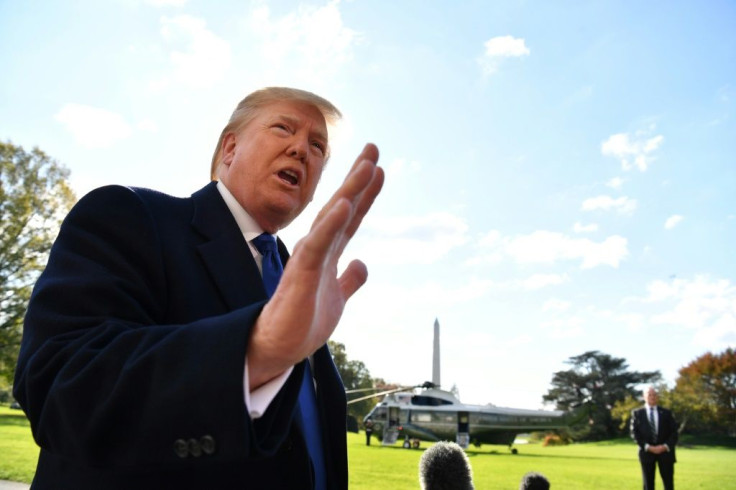EU Auto Tariffs: Trump To Delay Decision For 6 Months

President Donald Trump may delay the decision on slapping tariffs over imported European Union autos for another six months, according to reports.
The U.S was supposed to take a call on the matter by November 14 whether to impose a 25 percent tariff on vehicles and parts emanating from EU under a law known as Section 232. The decision is already late by six months.
Earlier this year, the Commerce Department in a report cited a threat to U.S national security from the imports of autos and auto components.
The proposed auto tariffs on the EU are seen as a response to the perceived threat to national security from auto imports.
According to Politico, Trump’s possible decision to defer the duty on EU autos soon could be a tactical plan. Opening a new window of a dispute with a leading trading partner like the EU is not feasible at a time Trump is engaged in settling the U.S China trade war by clinching a phase one deal with the Asian giant.
US trade representative’s talks with the EU and Japan
Trump news was that the President entrusted U.S. Trade Representative Robert Lighthizer to start negotiating deals with both the EU and Japan on auto imports issue and submit a report within 180 days. That deadline ends Wednesday.
According to an insider quoted in the report, except for an unforeseen development, the president, in all probability, will announce delaying the decision by another six-months.
Lighthizer negotiated a trade deal with Japan paving way for more U.S. agricultural exports to that country and liberalizing rules for digital trade.
Lighthizer later said Trump may spare Japan on auto tariffs in the light of the progress in negotiations. However, talks with the EU did not lead to a deal, mainly because the EU refused to bite the agriculture part in the negotiations.
In 2018, the United States imported passenger vehicles worth $192 billion from the EU. From 2017, car imports from the EU were subject to a 2.5 percent duty while light trucks faced a tariff of 25 percent.
Among the cars imported from the EU include German car brands BMW, Volkswagen, Mercedes-Benz, Audi, and Porsche.
On clamping tariffs on EU auto, the U.S-based Center for Automotive Research warned that tariffs on EU autos would lead to nearly 370,000 job losses in the local car industry and the annual car will also plunge by 1.3 million.
Many carmakers also expressed concern that the decision would escalate the U.S. auto industry prices by a total of $83 billion a year.
The new trade provisions of the U.S with Mexico and Canada as part of the updated NAFTA agreement is likely to be approved by Congress in the coming months. A deal with South Korea has already been reached.
© Copyright IBTimes 2025. All rights reserved.





















